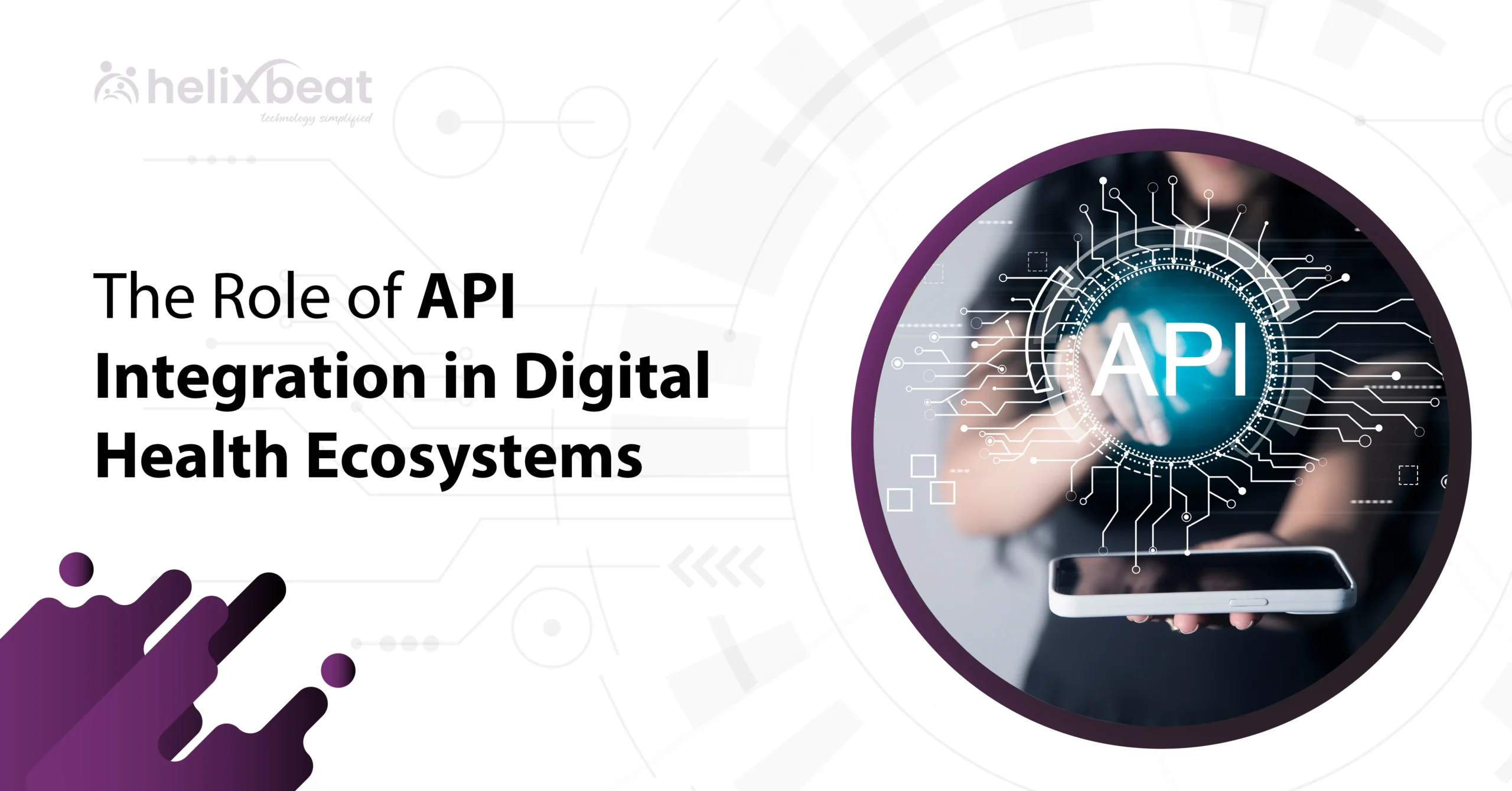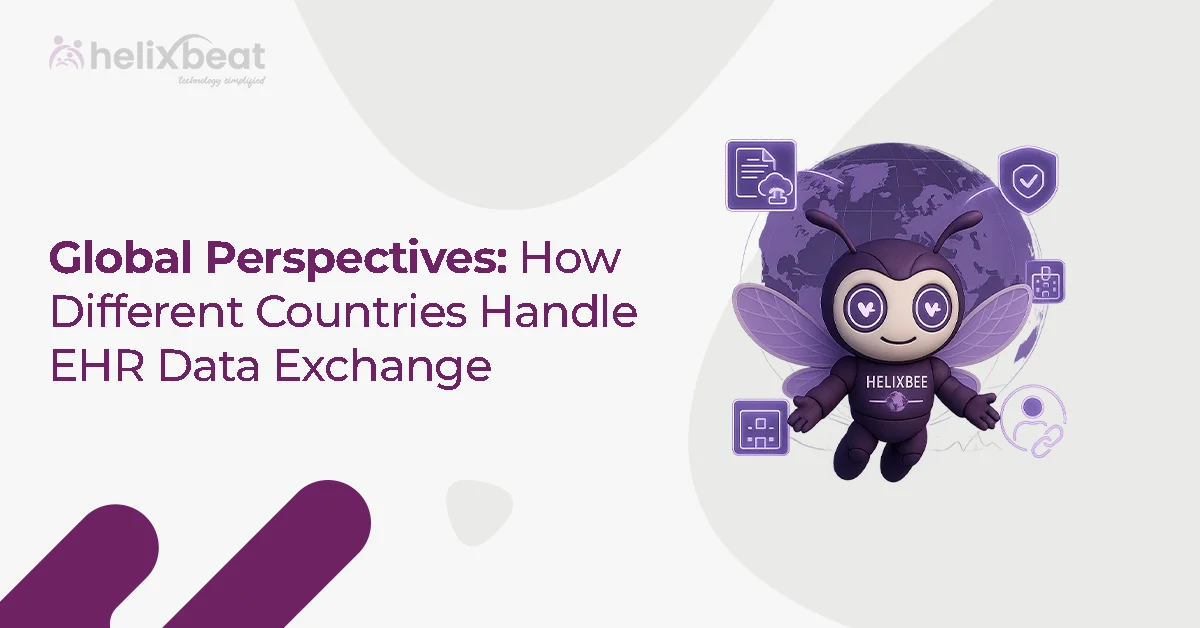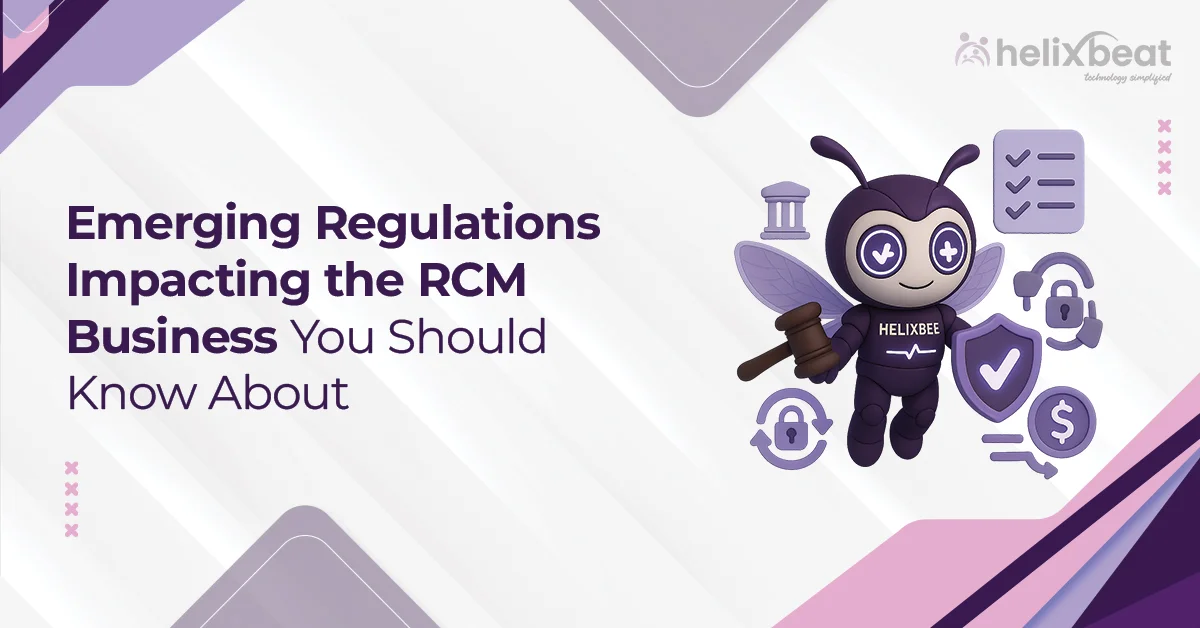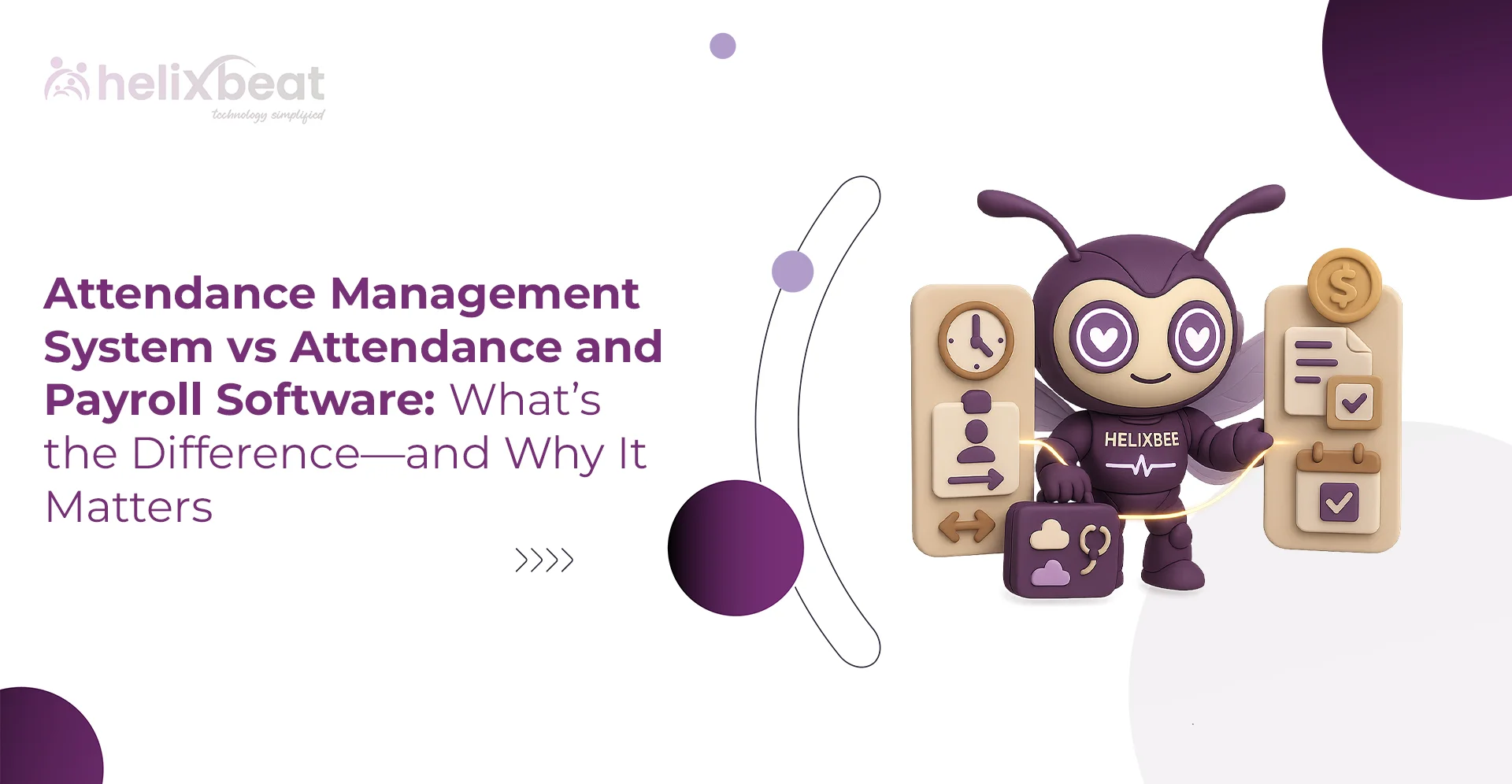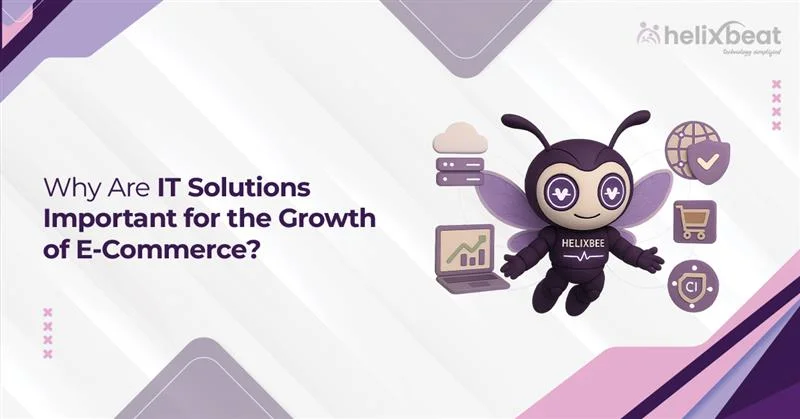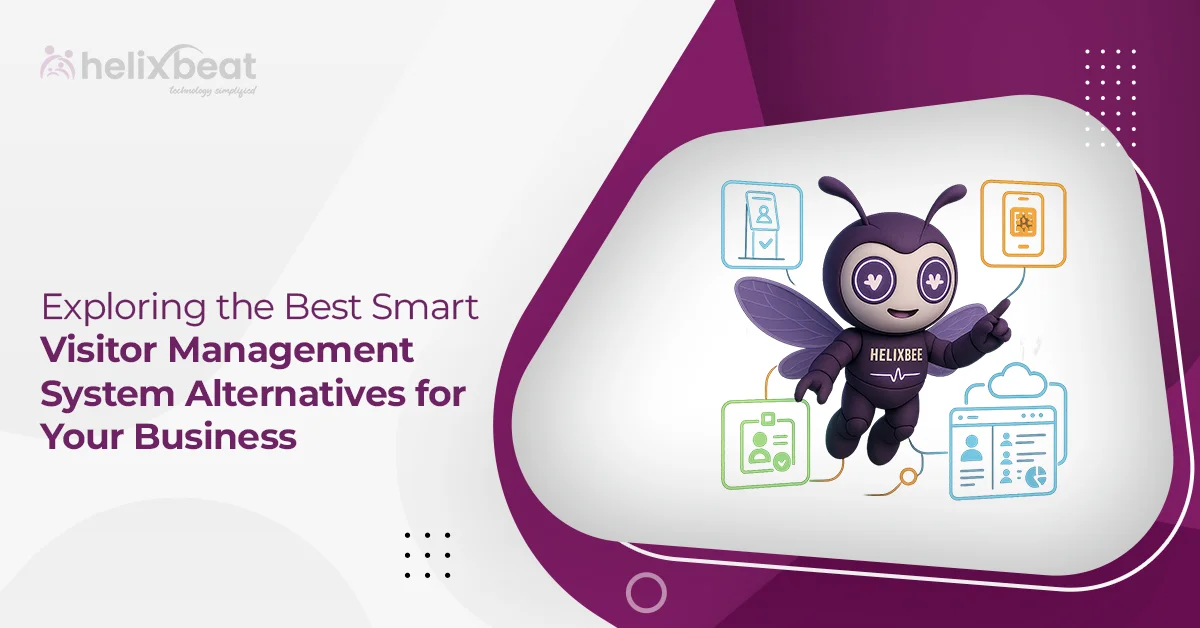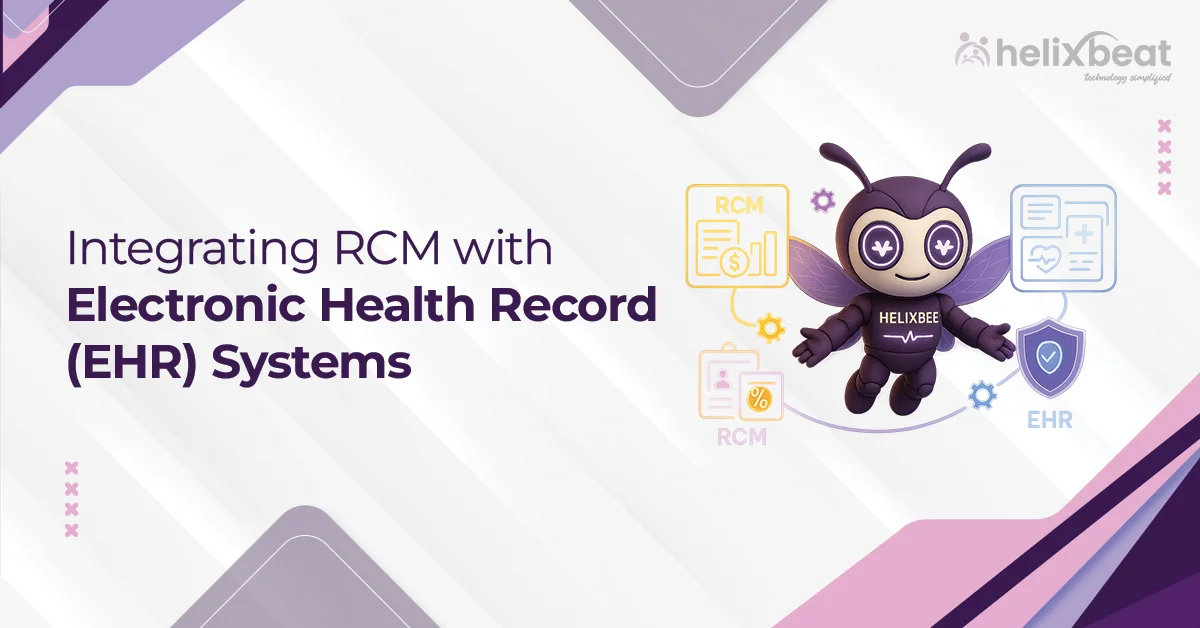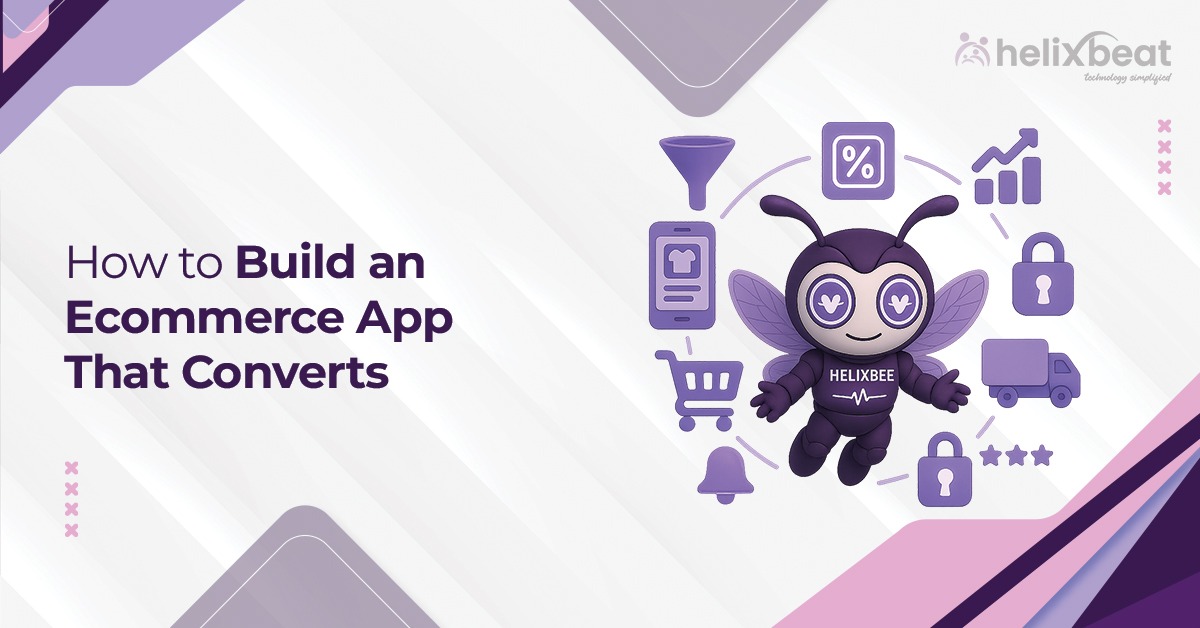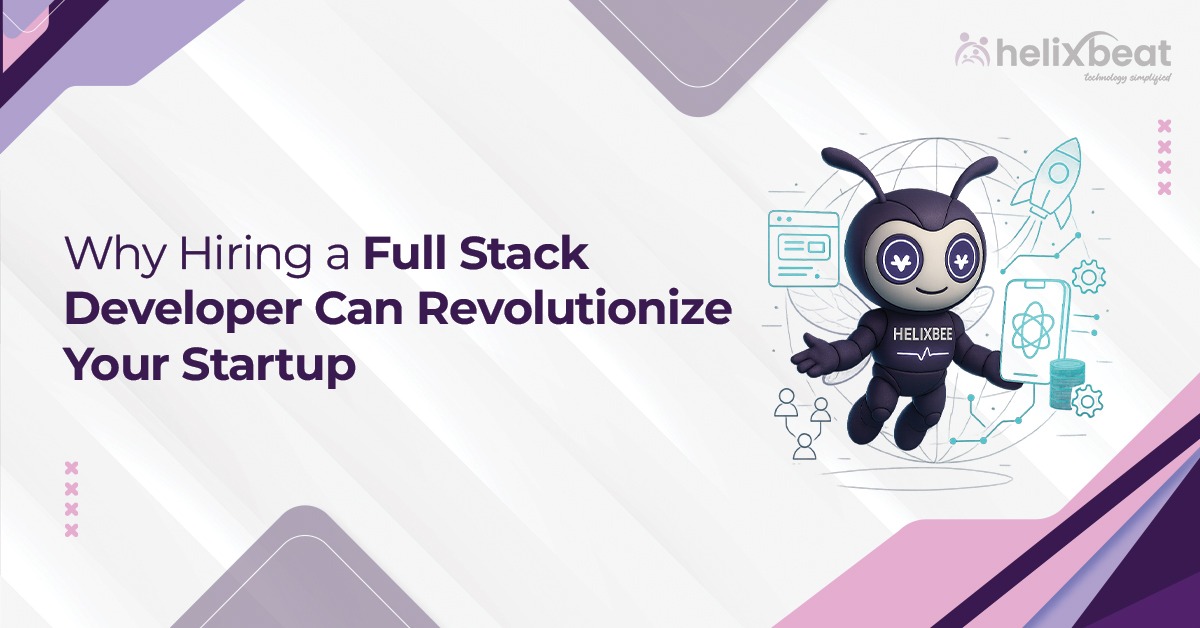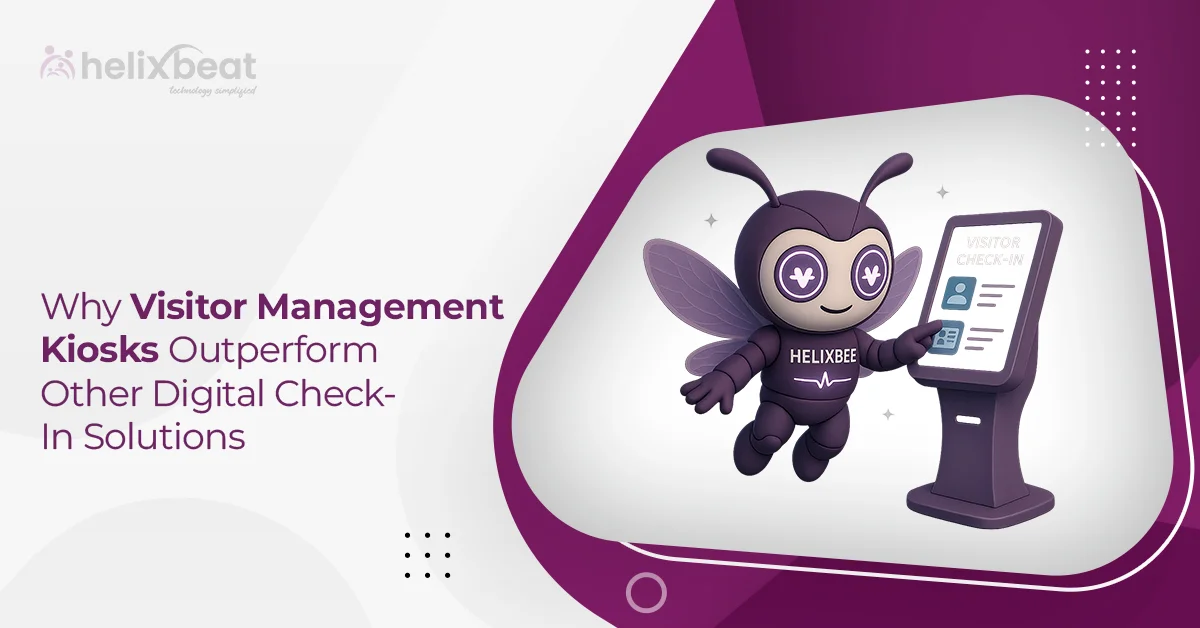Every healthcare interaction tells a story. But when systems don’t speak the same language, those stories get broken, delayed, or worse—lost. A mother visiting a pediatrician, an elderly patient undergoing dialysis, or a trauma victim rushed into the ER—each journey generates critical data. If these pieces of information remain trapped in silos, they compromise the care journey. This is where Digital Health Products plays a pivotal role. At the heart of it all is GENIUS by Helixbeat.

Table of Contents
What Is API Integration in Healthcare?
APIs (Application Programming Interfaces) act as digital bridges between healthcare systems, enabling them to communicate and share data seamlessly. In the context of digital health ecosystems, API integration for healthcare is vital for streamlining workflows, improving care delivery, and ensuring that crucial patient data is available in real-time.
Enabling Seamless Data Exchange
APIs eliminate the silos that often isolate healthcare data, ensuring that information flows efficiently across systems. Whether it’s lab reports, prescriptions, medical imaging, or patient histories, APIs facilitate the secure and swift transfer of this data from one system to another. This capability is essential for healthcare providers to make informed decisions quickly and accurately.
For example, when a cardiologist accesses a patient’s data from a general physician clinic in real-time, it’s likely made possible through API integration. This real-time data exchange enhances the decision-making process, allowing for timely interventions and improved patient outcomes.
Supporting Standardization Across Platforms
In healthcare, the standardization of data is crucial to avoid errors, miscommunication, or delays in treatment. APIs ensure that all data is formatted consistently, making it easier for different systems to understand and use. Without standardization, a patient’s data may be misinterpreted or delayed, which could compromise care delivery.
GENIUS Advantage: The GENIUS platform offers a significant advantage in this regard. With its Fusion module, all stored patient data is standardized using FHIR (Fast Healthcare Interoperability Resources) protocols. This ensures better coordination among healthcare providers, reduces the chances of errors, and ultimately improves patient care. By leveraging API integration for healthcare, the GENIUS platform seamlessly connects diverse healthcare systems, enabling a more unified, efficient healthcare experience.
Why API Integration Is Critical for Digital Health Products?
Every successful digital health tool relies on a robust API backbone to operate smoothly, exchange data, and provide real-time updates. API integration for healthcare is the key to ensuring that digital health products can function seamlessly, making data available when it’s needed the most and enabling better decision-making.
Faster Development and Deployment
With pre-built APIs, developers can focus more on innovation and less on building infrastructure from scratch. The GENIUS platform accelerates healthcare app development by offering modular APIs that handle the critical tasks of data ingestion, storage, and display. This allows developers to create solutions that are both fast to deploy and scalable, leading to quicker time-to-market and more efficient development processes for healthcare organizations.
Enhancing Patient-Centric Care
API integration is a game-changer when it comes to patient-centric care. APIs allow different apps and systems to feed into a single, comprehensive care plan. For example, a fitness tracker, a mental health app, and an Electronic Medical Record (EMR) system can all contribute to a holistic view of the patient’s health. This consolidated view ensures that healthcare providers can make better-informed decisions, offering more personalized and effective care.
GENIUS Use Case: PULSE, part of the GENIUS platform, captures and relays real-time updates from EMRs, lab tests, and appointment schedules directly to patient dashboards. This integration empowers both patients and providers by keeping everyone informed and up to date, enhancing care coordination and patient engagement.
Cost-Efficiency and Scalability
API-driven platforms offer significant cost-efficiency and scalability benefits. For healthcare providers, integrating APIs means they can scale their services easily without the need for massive hardware upgrades. This is especially important for expanding digital health products across various departments or practices, ensuring that the system remains adaptable as the healthcare landscape evolves.
By embracing API integration, healthcare organizations can enhance their digital infrastructure, enabling them to scale rapidly, improve efficiency, and offer higher-quality care.
GENIUS by Helixbeat: A Unified API-Driven Platform
The GENIUS platform brings together various aspects of digital health into a cohesive, interconnected system. With three key modules—AERIS, FUSION, and PULSE—GENIUS ensures real-time interoperability and streamlined healthcare data management.
AERIS: Simplifying Health Data Exchange
AERIS is a no-code module within the GENIUS platform designed to help format and transmit data between incompatible systems. It utilizes pre-built templates, making API integration for healthcare faster and simpler.
Benefit: AERIS streamlines patient referrals and reduces administrative bottlenecks, thereby enhancing operational efficiency for healthcare providers.
FUSION: Secure FHIR-Based Storage
FUSION serves as the backend server for storing and organizing patient data in standardized formats, particularly using FHIR protocols. This module enables seamless integration and real-time access to critical healthcare data, ensuring accurate decision-making.
Benefit: Emergency room physicians can instantly access historical patient records, improving diagnosis accuracy and enhancing the quality of care.
PULSE: Operational Management and Patient Engagement
PULSE handles daily workflows, patient communications, and EMR updates. It integrates with third-party applications, ensuring a seamless flow of information across systems. The APIs in PULSE automate essential tasks like appointment scheduling and notifications.
Benefit: Automated appointment reminders and care alerts, powered by the GENIUS platform, improve patient retention rates by 15%, ensuring better engagement and satisfaction.
Each of these Digital Health Products within the GENIUS platform uses powerful APIs to integrate various functions, making healthcare processes more efficient, timely, and accurate. Whether it’s streamlining referrals with AERIS, storing patient data securely with FUSION, or enhancing patient engagement with PULSE, GENIUS optimizes healthcare operations while ensuring seamless data exchange and real-time updates.
Impact of API Integration on Healthcare Ecosystems
When APIs power healthcare systems, they create ecosystems that are resilient, scalable, and outcome-focused. With the help of API integration for healthcare, organizations can enhance service delivery, reduce errors, and improve overall efficiency.
Reducing Errors and Delays
Standardized APIs eliminate up to 90% of manual entry errors by ensuring real-time updates across platforms. This enables seamless communication between different systems, which is crucial for maintaining accurate patient data and minimizing delays.
Boosting Interoperability and Compliance
The GENIUS platform ensures that healthcare systems remain compliant with industry standards such as CMS and HIPAA. With built-in audit trails, it provides regulatory assurance, enabling seamless API integration for healthcare that meets all compliance requirements.
Increasing Access to Care
API integration for healthcare also plays a key role in increasing access to healthcare. It enables telemedicine apps, wearable devices, and mobile health tools to plug into core hospital systems. This integration creates a unified ecosystem where patient data is continuously updated and available for review, even remotely.
Example: A mental health app using GENIUS can push patient-reported outcomes into EMRs for therapist review. This integration enables real-time updates, providing more efficient care for patients.
The GENIUS platform, as part of the Digital Health Products ecosystem, enables fast deployment in healthtech, allowing healthcare organizations to quickly adapt to new technologies without disrupting existing workflows. By integrating data from diverse sources, including mobile apps, wearables, and traditional systems, GENIUS helps healthcare providers deliver better, more coordinated care.
Wrapping up
The healthcare industry is transitioning toward connected ecosystems, where care is continuous and data flow seamlessly. API integration is the engine behind this shift. Whether you’re developing a new digital health product or optimizing an existing system, API-first thinking is essential.
GENIUS by Helixbeat is a clear example of this transformation. By offering modular, interoperable tools like AERIS, FUSION, and PULSE, it not only simplifies development but also prepares organizations for AI, IoT, and the next generation of digital health innovations.
If you’re ready to future-proof your digital health stack, start with the right APIs. Start with GENIUS.
FAQs
1. How does GENIUS by Helixbeat help with API integration?
It offers pre-built APIs and modules like AERIS, FUSION, and PULSE that support real-time data exchange and interoperability.
2. What is FHIR, and how does it relate to GENIUS?
FHIR is a standard for health data exchange. GENIUS’s FUSION module is a FHIR server that organizes patient data for easy access.
3. Can GENIUS help reduce medical errors?
Yes, it eliminates 90% of errors by standardizing data and reducing manual entry across systems.
4. Is API integration secure for healthcare data?
When implemented through platforms like GENIUS, it includes compliance and security layers to protect sensitive data.
5. What role do APIs play in patient engagement?
They allow apps to push updates, reminders, and reports directly to patients, increasing satisfaction and retention.
6. How fast can a healthcare app be developed using GENIUS?
Using GENIUS APIs, developers can cut down build time significantly, enabling fast deployment of healthtech solutions.



